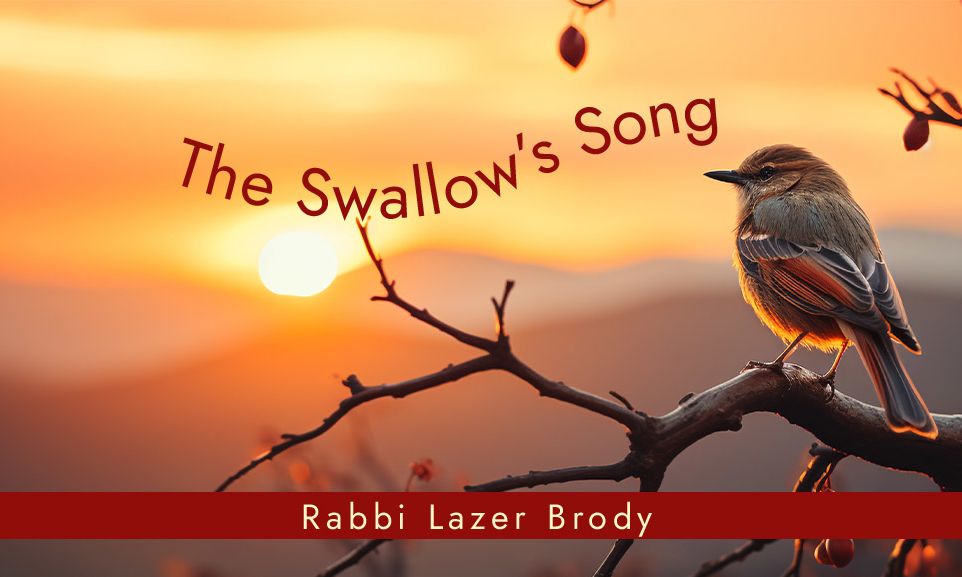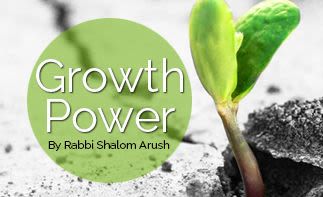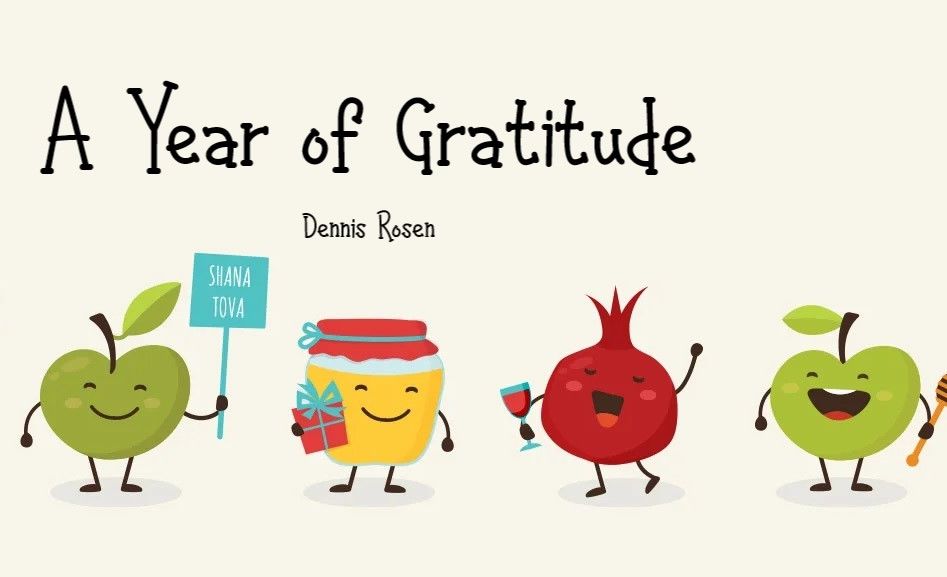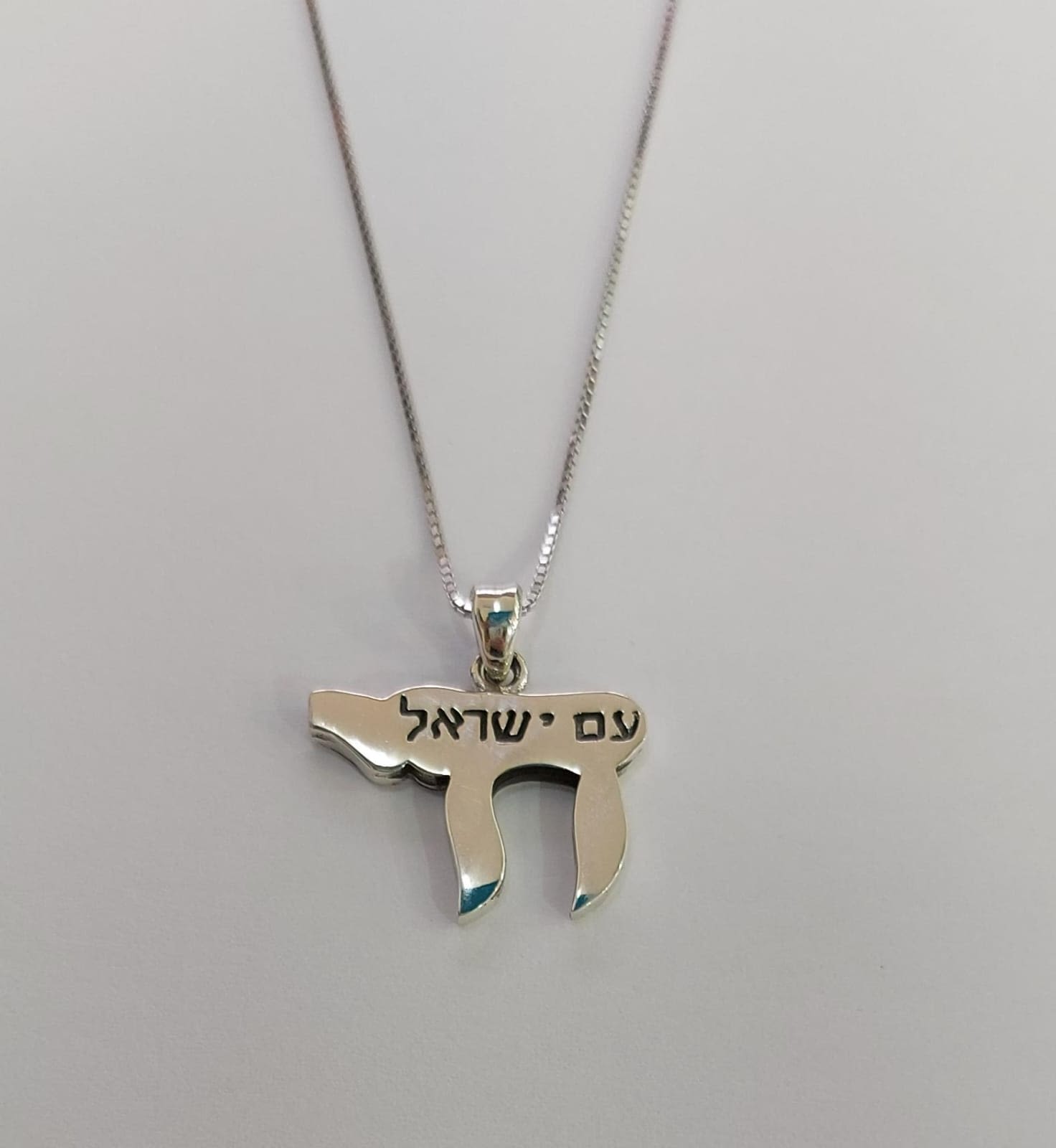
The Swallow’s Song
On Shabbat Shira, the “Sabbath of Song”, we read the Torah portion of Beshalach. All of creation sings songs of praise to the Almighty, but the birds excel. Of the birds, the swallow sings with all its soul, teaching to always thank and praise Hashem.

In Jewish tradition, dating at least back to the time of the Baal Shem Tov, there is a beautiful custom on Shabbat Shira, the “Sabbath of Song” when we read the Torah portion of Beshalach: we place leftover morsels of challah [1] on our windowsill or balcony so that the birds can enjoy them. Rabbi Eliahu Kitov in his classic Sefer Hatoda’ah [2] explains two reasons for this custom, as follows:
First, when the Jewish People left Egypt and began their lengthy journey in the desert, the Almighty sent them the manna, the Heaven-sent bread. Moses commanded them to gather the manna every day except on the Sabbath, the holy day of rest. Instead, the Almighty would send a double-portion on the sixth day that would suffice for the Sabbath as well, without becoming spoiled. The wicked Dothan and Aviram, along with their evil companions, wanted to discredit Moses. Friday night after dark, they snuck out of the encampment and placed manna all over the field. They had planned to call all the people out to the field early Sabbat morning to show them that Moses was a liar, as if the Almighty really did send the manna on the Sabbath. Meanwhile, the birds foiled their scheme and ate all the manna. Dothan and Aviram fell into the very trap they set for Moses. Rather than Moses losing face, Dothan and Aviram were the ones who were disgraced.
Second, at midnight of Passover’s seventh day, the Almighty miraculously split the Red Sea for the Israelites. After they were saved from the Egyptians, they broke out in a joyous song of praise to the Almighty, which is recorded in the Torah in the portion of Beshalach. The birds joined in the singing as well. Indeed, some of our sages say that the birds initiated the song of praise, known as Shirat Hayam, and the Israelites joined in.
Either way, the Almighty gives every creature its due reward, and the birds get the special treat of challa morsels and other leftover goodies on Shabbat Shira.
The importance of singing songs of praise to the Almighty is unfathomable. During the reign of King Hezekiah, every single child in the Land of Israel knew the Torah and its laws backwards and forwards, 49 times over. There was no spiritual ignorance during Hezekiah’s time, for he virtually forced the entire nation to be occupied in Torah from morning until night. In turn, the Almighty performed formidable miracles for Hezekiah and the Jewish people. According to the Gemara, Hezekiah should have been the Mashiach. But his nonstop Torah learning and prayers did not suffice. under close inspection by the Heavenly Court, the fact that Hezekiah never sang songs of praise to the Almighty like his great-grandfather King David and Moses did. Hezekiah, as unprecedentedly righteous and great as he was, was nonetheless disqualified.
In the introduction to Perek Shira, we learn that even King David, Hashem’s anointed whose Book of Psalms is the greatest collection of songs of praise to the Creator that was ever written, was nonetheless chastised by a frog whose 3,000 songs of praise are twenty times more than King David’s 150! Yet, when it comes to songs of praise, the birds outshine all of creation. The fourth chapter of Perek Shira is by far the largest of the six chapters, for it relates the song of the birds.
The swallow is the most excellent of the excellent, for it especially knows the secret power of songs of praise. The swallow sings, “So that my soul shall sing Your honor and shall not be silent, Hashem my G-d – I shall forever thank You!”[3]
The birds sing incessantly to Hashem, yet the swallow goes a step further – its soul never stops singing. Its songs are not a matter of lip service; they come from deep down inside. What’s more, the swallow’s constant songs of praise enable it feel Hashem’s amazing love for every creation. The swallow is therefore ever grateful, as it sings, “I shall forever thank You!”
The next time you hear a bird singing, stop and think how many reasons we have to sing and be grateful to Hashem. Anytime is a good time to sing to Hashem. If you don’t know how, why not start by reciting Perek Shira, the collection of songs that each creation sings to the Almighty. It will undoubtedly invoke every single blessing and all your heart’s wishes for the very best, amen!












Tell us what you think!
Thank you for your comment!
It will be published after approval by the Editor.